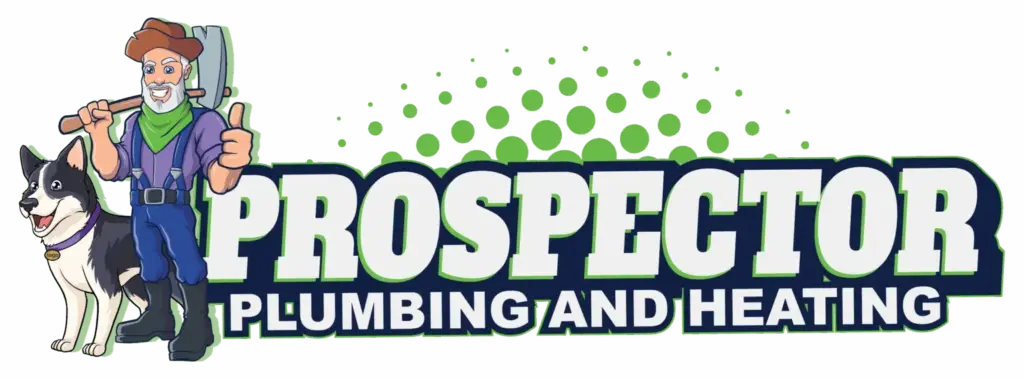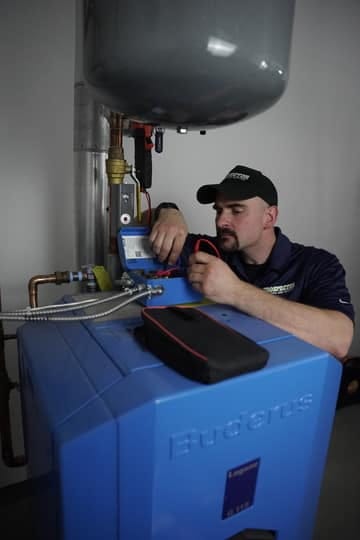Your water heater keeps your home’s shower; kitchen sinks hot when you need it, and the different appliances in your home, such as your washer and dishwasher. Whether you have a tankless water heater or a tank water heater, they all require proper plumbing maintenance to operate efficiently and last as long as possible. Follow these five tips for effective water heater maintenance.
#1. Flush Water Heater Once a Year
One of the main things you will notice is that your water heater accumulates sediment buildup over time.
All water contains minerals in it, such as magnesium and calcium. When hot water evaporates, the minerals get left behind in your water heater. These calcium deposits can damage different components in your water heater or cause a clog somewhere in your plumbing system, leading to even worse plumbing repairs.
To remove the sediment buildup, you need to flush the water heater. Flushing the water heater consists of draining the storage tank until the water no longer contains excessive levels of minerals. Even tankless water heaters require flushing. However, with a tankless water heater, you’ll need a pump to help circulate water through the unit.
To reduce mineral deposits in your water heater, you can install a water softener. You can also use lower water temperatures and lower water pressure.
#2. Replace Anode Rod Every 3 – 5 Years
Your water heater tank has an anode rod that attracts corrosion so that the corrosive materials eat at the anode rod instead of the tank itself. Numerous anode rods depend on your water conditions and your budget.
An aluminum anode rod is best for hard water conditions, but it’s also the one that must get changed the most, and it’s not as effective as the other options.
Zine anode rods are similar to aluminum anode rods. Still, they include the added component of making your water fresh again if you experience water discoloration or water that smells like rotten eggs.
Magnesium anode rods produce the best results and last the longest, but they’re the most expensive.
You have an anode rod in all storage tank water heaters, whether an electric water heater, propane water heater, or natural gas water heater. Your tankless water heater does not have an anode rod.
#3. Tighten and Seal All Connections
Water heaters have a couple of connections that allow them to properly receive and transfer water throughout your house.
If these connections get loose or damaged, you will need to fix the problem before you experience a leak.
Some of the areas to check on your water heater include:
- Pressure relief valve: a valve that allows the water heater to release pressure in your tank
- Shutoff valve: a valve that prevents water from entering the water heater from the water lines
- Drain valve: a valve that allows the water in the tank to escape down the nearest drain or outside using a garden hose
- Gas control valve: a valve that will enable you to control gas to the water heater is a gas heater
Tighten all connections with a pipe wrench and verify that they work properly.
If all of the valves work well and have a tight connection, you can put off replacing them until the time comes.
Related Article: Why should you get home heating maintenance in Fairbanks AK
#4. Replace Damaged Components
Sediment buildup can put extra strain on the different components in your water heater, damaging them. When you notice a part not working properly, you will need to replace it.
Your heat exchanger is one of the most important components in your water heater. The heat exchanger is where the water heater heats the water. The heating element inside the heat exchanger may need to be replaced to get the operations working as normal.
#5. Get a Water Heater Replacement
No water heater will last forever. You probably need to get a water heater replacement at a certain point.
When looking into a new water heater, consider fuel type, energy costs, installation costs, venting pipes, and the location of your cold water lines. If you struggled with how much hot water your old water heater provided, you might want to consider a larger water heater or an expansion tank.
Conclusion
Water heaters are an essential part of your home. You need to perform regular maintenance to keep your water heater running as long as possible. However, even the best-maintained systems require replacement over time. When interested in water heater replacement, do your research to pick the best water heater for you and your family. Don’t forget to do your research on the company you choose to do the installation. Don’t forget to ensure that they will take the existing water heater with them and dispose of it properly after the job. Contact Prospector Plumbing to ensure that you get proper water heater maintenance starting today.



